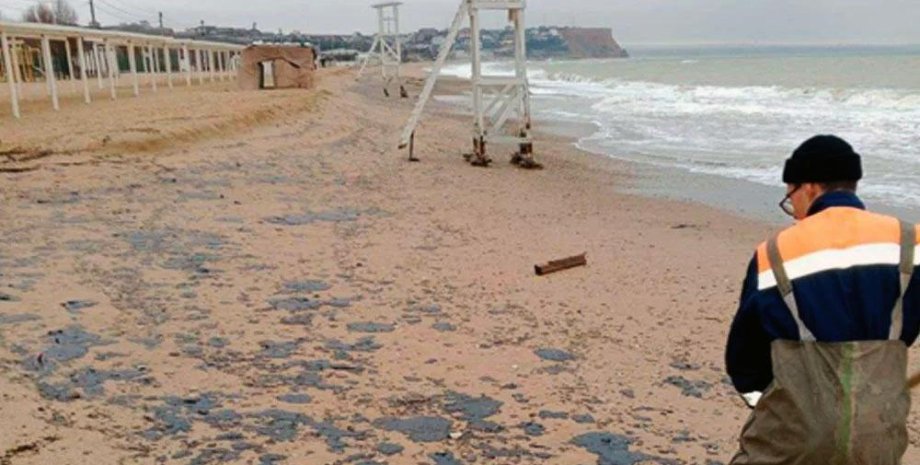
 By Natali Moss
By Natali Moss
According to the ecologist, earlier he suggested that the fuel oil could reach Odessa at the end of spring. "Already today, observing the dynamics of pollution of the Crimean coast, I understand that this can happen much earlier," Balinsky said. He explained that the already contaminated beaches of Evpatoria are located 375 kilometers from the disaster. Thus, the fuel oil has passed more than half of the way to Odessa. Less than 250 km remained to the coast of the Odessa region.
The clots of fuel oil at today's temperature are moved by the sea in the direction of the main Black Sea current. That is, they will move counter -clockwise to Odessa region, and then - to Romania and Bulgaria, Balinsky wrote. "On the western part of the Crimean coast, clots are ejected especially active these days, since the water temperature is higher (clots float) and there is a strong clamping wind from the sea.
The next such southern wind can start throwing a fuel oil on the coast of Odessa Gulf or somewhere closer to Romania. In its Telegram-channel, the Crimean Wind Monitoring Group reported on January 8 that on Tuesday, 7 January on the Crimea coast was recorded in the convex reserve on the Kerch Peninsula and in Theodosi Western. It was later added that new spots were found after a storm in Sevastopol near the beaches "Lyubimivka" and "Star Bank".
We will remind, on January 5 the monitoring group "Crimean Wind" showed in satellite images, where the fuel oil is noticeably marked by the shores of Crimea. In the pictures of January 4, contamination was found on the beaches of Feodosia, Alushta and Prampsa. Earlier, on January 3, the Crimean Wind Group reported that about 18 km of Sevastopol was contaminated with petroleum products from the Russian tankers.










All rights reserved IN-Ukraine.info - 2022